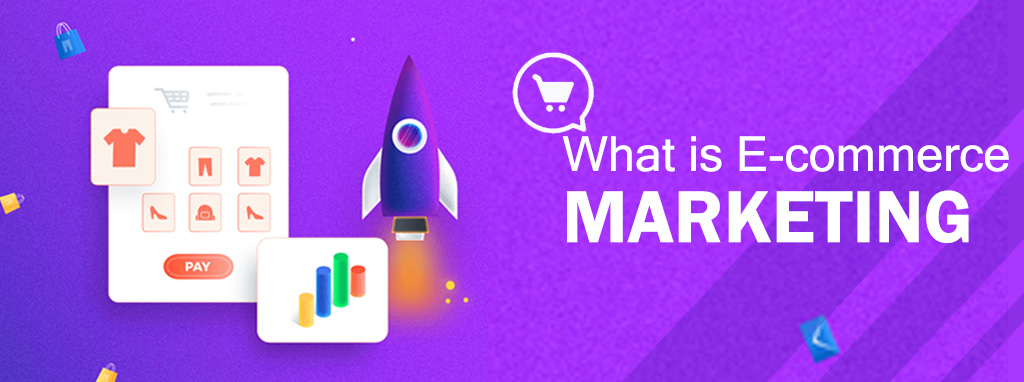Table of Content
All the things are nowadays working online ranging from studies, work and, shopping. This pandemic has created a wave of change all across the globe. People are now more interested in buying and selling things online.
On the other hand, a rise has been found in the sellers on various eCommerce platforms. The blend of these two things has emerged a change that leads to a boom in eCommerce.
Do have you ever thought about how you got the relevant products details in your social media feeds? How do you receive discount emails from your favorite brand? Why do your social media platforms give you all the info about the things you have been searching for on your feed?
Well, all these questions are so common, but nobody pays heed to its hidden facts. These are the eCommerce platforms’ marketing strategies that help boost the sales of the brands, products, and services.
In this article, let’s check out marketing and eCommerce support and facts to boost your sales for desired growth.
What is eCommerce Marketing?
eCommerce marketing is a way to widen the awareness of any product or brand to boost its sales and help in growth factors. It includes the use of various the utility of various things such as email marketing, content marketing, social media marketing, etc.

Most eCommerce platforms offer SEO and eCommerce marketing that garnered a wide range of customers. It eventually helps to increase sales and make customers happy at the same time.
While thinking about what is eCommerce, you should know that it is the online selling or buying of goods or services. There are various marketing strategies used to support the desired inferences of the sellers for sales.
There are different types of internet marketing services that you can use for digital marketing and eCommerce store. But how do you choose the best strategy plan? And what are their relevant facts? Dive in to grab the sneak peek.
What are the Kinds of eCommerce Marketing?
Before you invest your time and effort in selecting the best eCommerce and marketing support, how to create and run an eCommerce campaign via social media marketing?
Here are a few types of eCommerce marketing with features that you can use according to your business needs.
1. Social Media Marketing
This is the era of Facebook, Instagram, social media that has given access to everything. That is why they are the most feasible options to access the customers.
Most users buy the products on Facebook and Instagram. According to various facts, almost 55% of people purchase from Instagram and similar social media platforms. Now, people are more clung to their mobile phones and prefer ease in every task of life.
It is pretty common to create a page of your brand or product to the hype on social media platforms. They use it to connect their customers in a very natural way. Running a campaign of your brand or product helps in a very beneficial way.
Make your product’s images, posts, and details more customer-oriented to increase the purchase rate because social media platforms require the best imagery to impress the customers.
Moreover, you can make your social media posts more beneficial by giving relevant content to each product. Finally, you can use the social media platforms review to sue them on your store for building the trust factor to your new customers.
2. Content Marketing
Content marketing is quite relevant to giving accurate information to the customers about the product the content, blog, article, or documented videos must be so engaging and informative that customers will love to buy the product at once.
Try to optimize your content and page copy by using the keywords. Basically, keywords are the search terms that are already in searches from the customers. You can use eCommerce, and digital marketing keywords support to get into searches when people have been looking for the desired product.
Keep the titles, headers, and images of the product page more attractive and focused. This will help to engage your customer and induce them toward buying. All these things are possible when you use SEO-supported, best researched, and uniquely written content.
You can make blog posts, avail of the guest posts, and utilize the product-related videos on YouTube for making them easily accessible for the customers.
3. Search Engine Marketing
SEM or Search engine marketing combines search engine optimization (SEO) and paid advertising to give a double boost to your eCommerce store. It functions as Google’s ranking algorithm to optimize content, but SEM includes pay-per-click (PPC) campaigns and specific campaigns related to the products.
PPC is abbreviated as the pay-per-click that helps to gather the potential buyers to your store with the help of a single click. This is good to promote your product because it takes the customer to the buyings, i.e. by clicking on the things placed on the Google searches feed.
4. Email Marketing
This is the easiest but best way to use eCommerce with marketing for better outcomes. How to maximize sales eCommerce, direct sales and marketing by sending an email?
Well, it is possible by sending an email to your customers. Yet, this is an old way, but still, it is in practice and has a more significant impact to pursue maximum customers.
Last to Say
eCommerce and marketing is the best solution when you want sales to boost. It has the bend of different marking strategies that help make our business grow as per your desires.
There are various questions such as where to marketing end and eCommerce begin in organizations? What is the difference between eCommerce and digital marketing? And why do email marketing and eCommerce matter?
All these questions lead to creating a curiosity about eCommerce and marketing strategies. You can have an idea about the types of eCommerce marketing and choose the best one that fits your needs.
Make your business growth possible by choosing the most feasible and accurate eCommerce marketing strategy.








